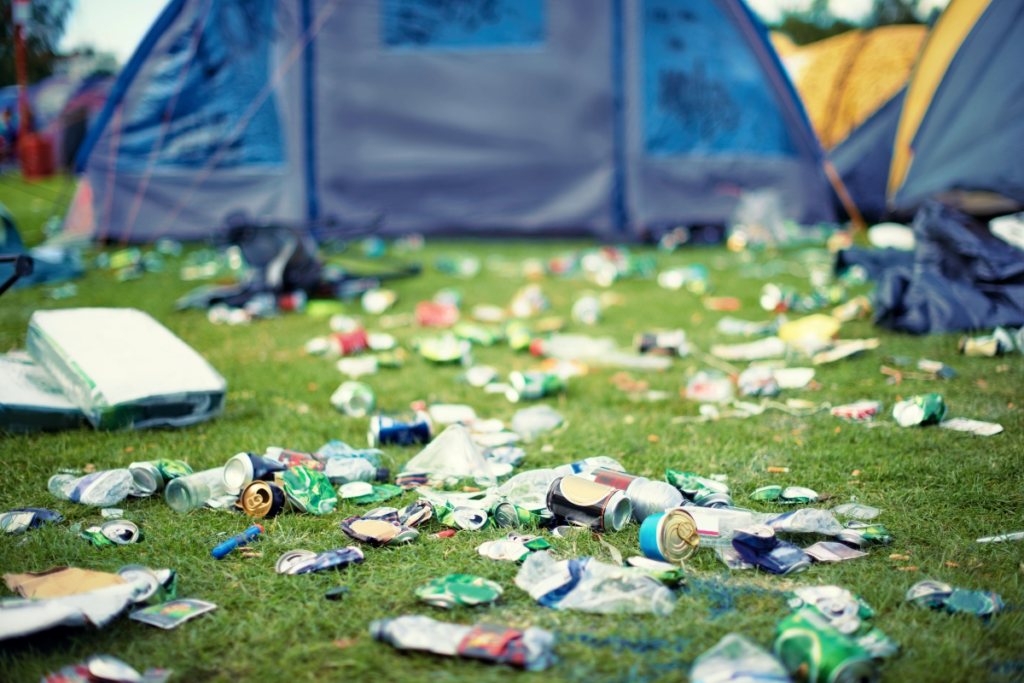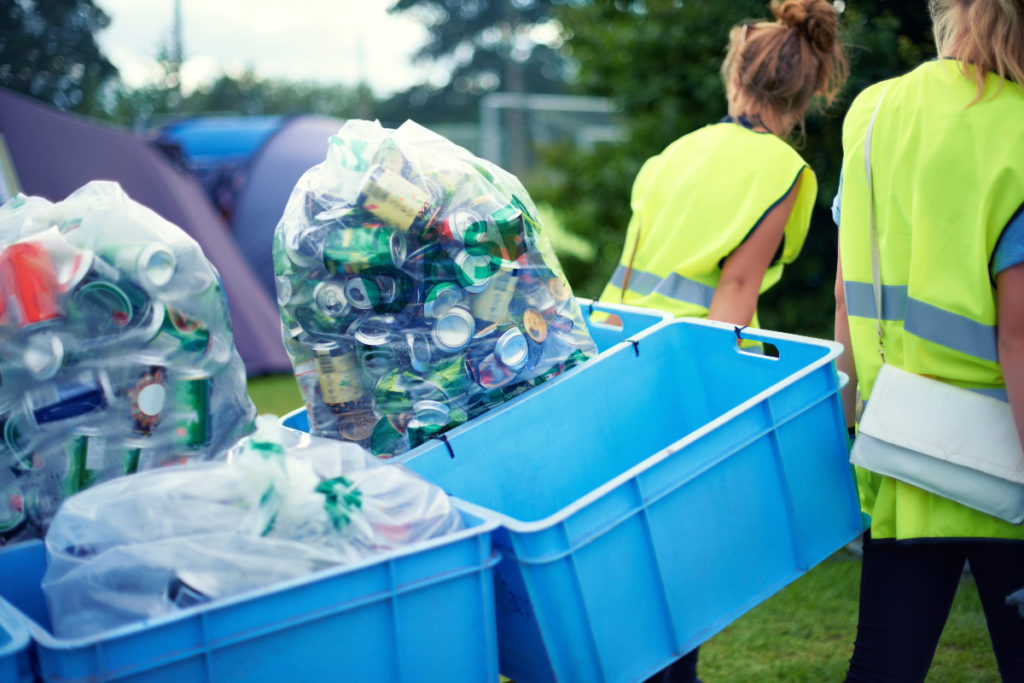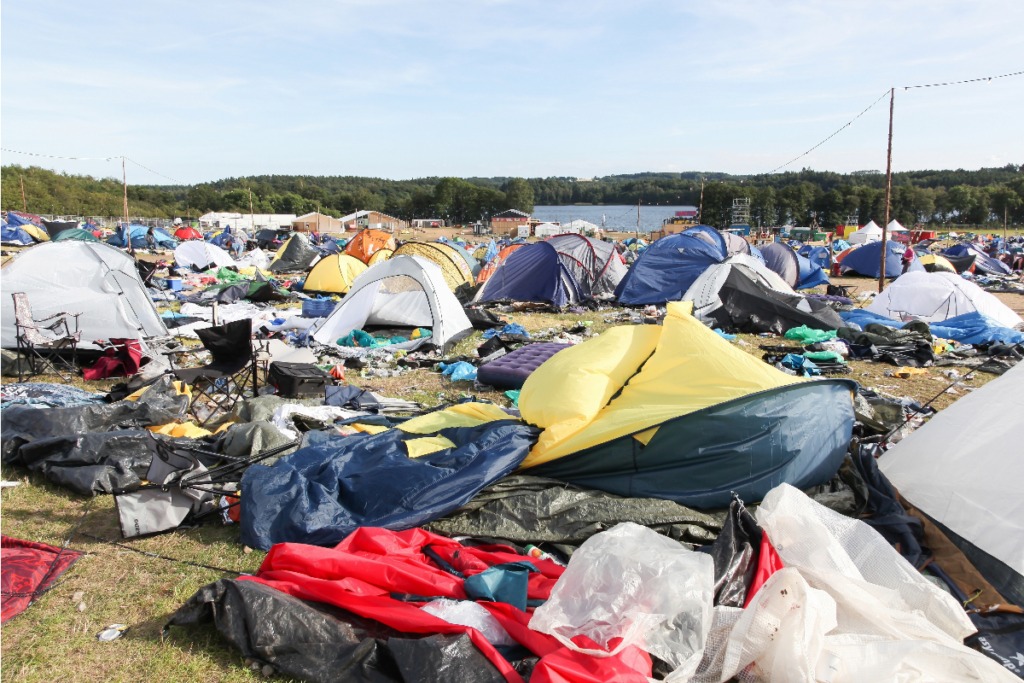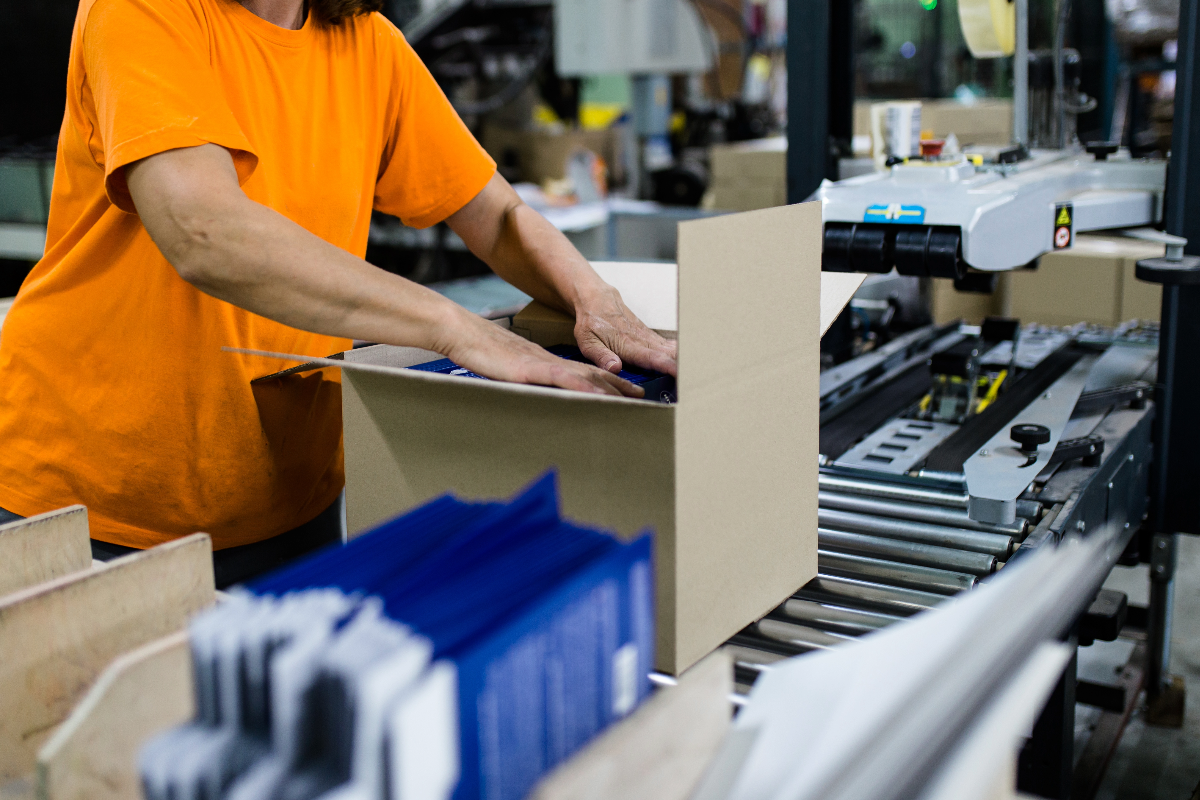BLOG
How can you create sustainable festivals?

Each year, it becomes a tradition that after the festival season, pictures and videos of discarded tents and rubbish flood social media with calls for more sustainable festivals. But what’s the solution for this and what are event’s organisers doing already?
What’s the current festival waste situation?
Every August, festival waste circles back to becoming a top news story. Reading and Leeds Festival are the most recent to do the rounds with before and after drone footage appearing on social media. According to the BBC, the amount of waste collected every year is equivalent to 78 fully loaded Boeing 747 jumbo jets. Everything from wristbands, fancy dress, sleeping bags and tents are common sights in the aftermath of a festival. A 3.5Kg tent emits the equivalent of 25kg of carbon dioxide into the atmosphere.
Whilst the waste produced at festivals is on the decrease, it is still incredibly high. Festivals are beginning to introduce waste prevention methods, but waste volumes are still high. Reading Festival said that the waste created at last year’s festival was 42 tonnes lower than the previous year. But this was only a 5.07% decrease – highlighting the scale of the problem.
Want to stay up to date with the latest waste industry news? Check out our LinkedIn!
What’s causing the problem?
As with any problem solving, the first step is finding the root cause of the problem. Manchester University led a research project at Glastonbury to fully understand why festival waste is so big of a problem. They conducted on site and exit interviews with festival goers as well as taking photographs of the site throughout the weekend to see where waste was accumulating. The study took three years in total and found that the cause was a lack of education for festival goers on tent disposal and waste and community behaviour. They found that event attendees knew they shouldn’t leave waste and would actively speak about environmental issues, but their behaviour and actions didn’t reflect this attitude. They cited costs, arguing that, after paying thousands to attend, they didn’t feel that it was “their job” to clean up.


How can you create sustainable events?
The best way to make your event more sustainable is to focus on educating both your attendees and important stakeholders. Putting sustainability at the heart of your event is going to take investment and you’ll need to have everyone on board. Sustainability initiatives, such as Glastonbury’s “LeaveNoTrace”, ensure that everyone involved knows from the get-go that you’re serious about being sustainable.
As part of your event planning, you’ll need to create a total waste management plan that covers every possible waste stream your event could have. This will need to cover everything from portable toilets to food waste. Planning ahead and early can help you to create a full waste management plan ensuring that nothing is missed at the last minute.
You’ll need to consider your carbon emissions too as this is all encompassed under sustainability. How much energy is your event using and where is this coming from? With most festivals being held in remote locations, they often rely on generators to power lights, sound systems and vendors. This often comes from non-renewable sources too. Some festivals have begun using renewable energy generated on site to power their stages, so you will need to factor this into your sustainability plans. You’ll also need to consider indirect emissions too. How are people getting to your event? Could you put on a shuttle bus or encourage festival goers to car share to reduce their emissions? All this planning will help you to create sustainable festivals.
Want to find out how Flame UK can support your event? Click here!
How are festivals creating sustainable events?
This year, festivals have stepped up their game to become more sustainable. BoomTown’s ‘Eco Bonds’ helped to cut down the amount of waste from leftover tents. They created ‘Eco Bonds’ where festival goers can take full bin bags back to their hub after the festival to reclaim a £20 deposit. In total, 3,000 people signed up for the initiative and pledged to use the correct bins and take their tents home.
Tents are one of the most common items left behind at festivals. Outdoor retailer Decathlon launched a ‘Festival Tent Pledge’ earlier this year. The initiative allows customers to return a specific type of their tents after a festival. As a reward for returning the tent, they can receive a full £29.99 gift card refund.
Boardmasters, a festival based in Cornwall, had ticketholders pay a £10 ‘litter bond’ alongside their ticket. This would then be refunded if they collected rubbish on site during the event. This was all in addition to banning single-use sachets, straws and waterbottles at food trucks and vendors. All this was a part of their #LeaveOnlyFootprints campaign, asking event goers to respect the coastline and keep the campsites clean.
Contact us
2023’s festival season might be coming to a close, but it’s never too early to start planning for 2024 events. Our team can help you create a full waste management plan for your event to reduce waste and become more sustainable. Contact our team today to find out more about how Flame UK can support your event.




